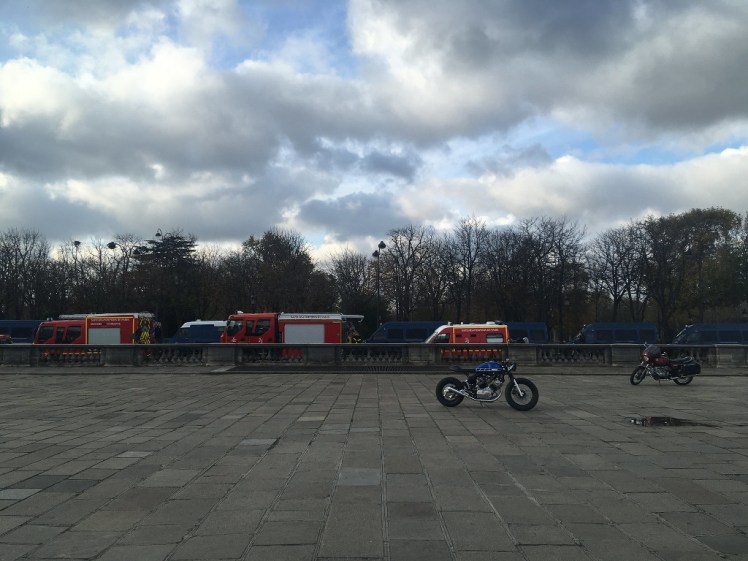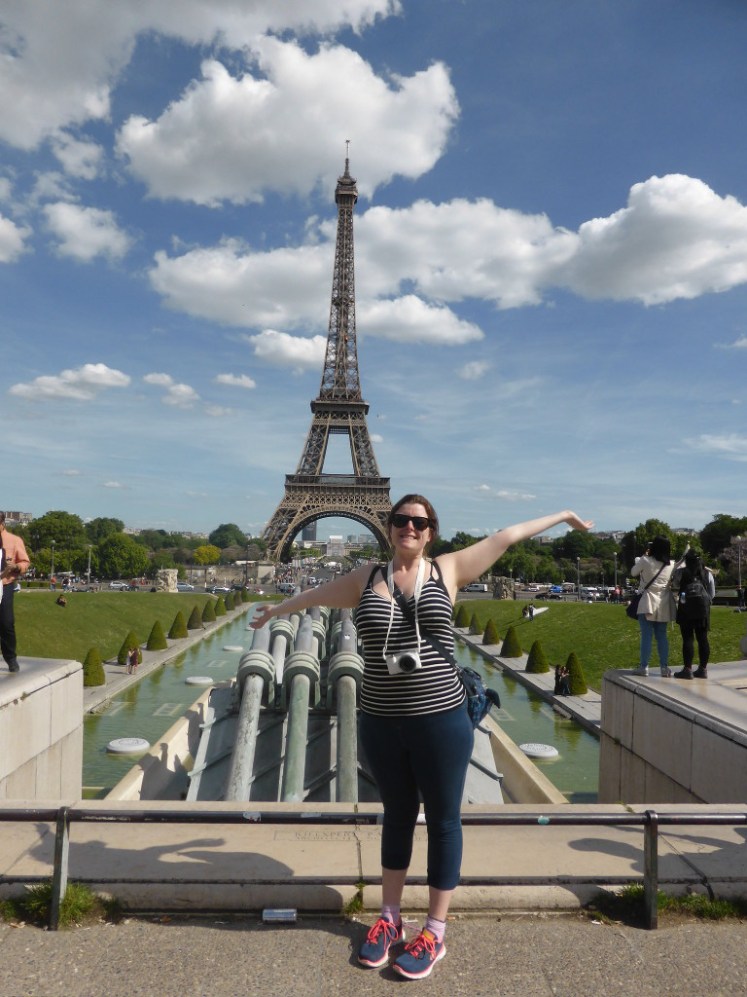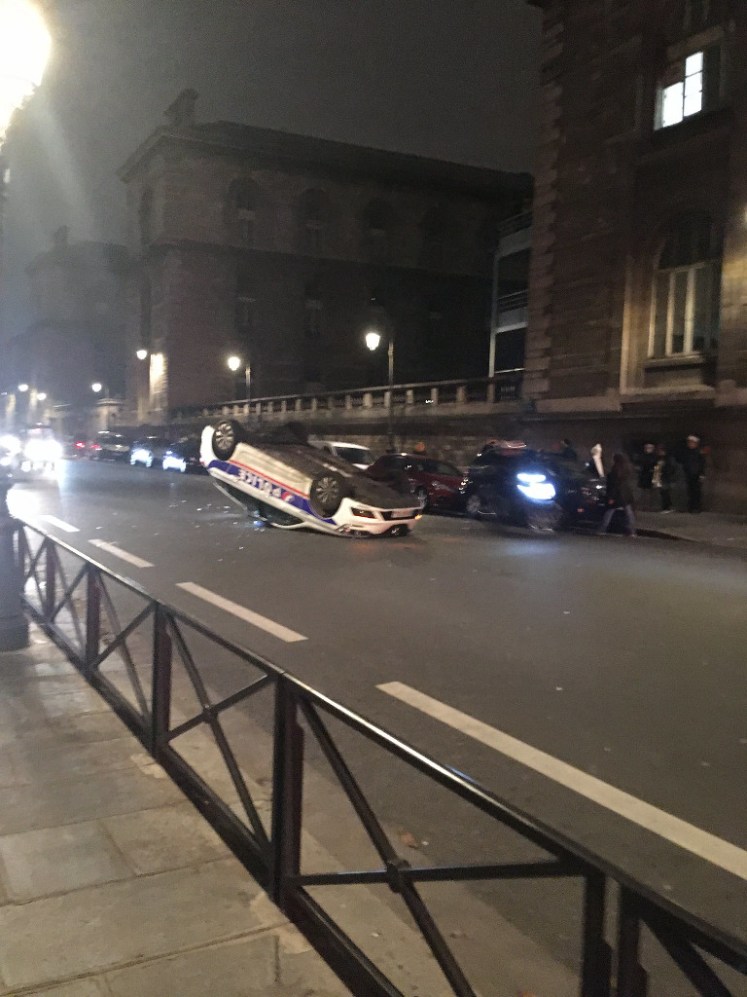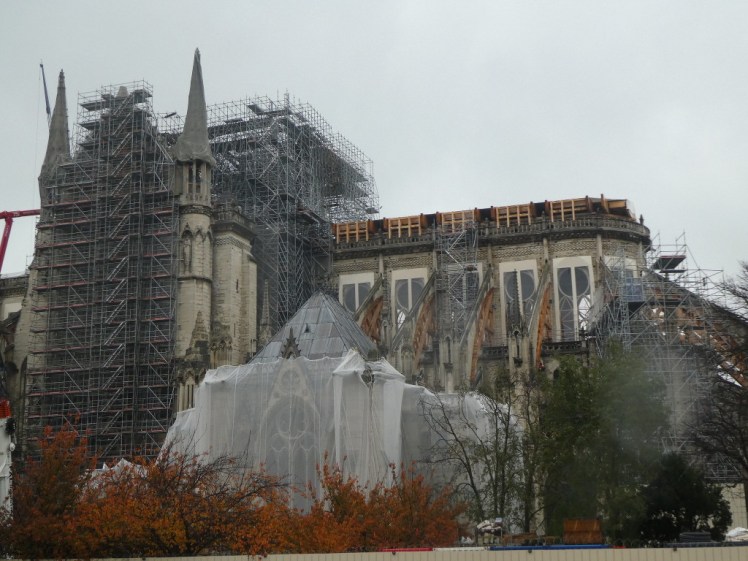The weekend I was in Paris was the weekend gilets-jaunes protestors celebrated their first anniversary by causing havoc all over again. I stood in Place de la Concorde, looking at police cars and riot vans lining the square, armed police pacing around, sirens and blue lights rushing up and down both sides of the Seine and thought “This isn’t my Paris”.
The irony of thinking that while standing in Place de la Concorde.

Paris is the City of Love. It’s the most romantic place in the world. To be honest, I don’t know why. Paris to me is a big overcrowded overtouristed dirty city. I hasten to add, I think the same about London but somehow I love London and if you take away the chaos and the filth, all you’ve got left is a kind of museum. Take that away from Paris and you’re left with… well, a kind of museum, I suppose. I feel like the dirt is part of London’s heart and soul whereas it feels like something unnecessary and unpleasant in Paris. I’m not in love with Paris. I went there because I wanted to go on the Eurostar. I’ve already written a blog about the appeal and romance of the train. I didn’t go there because I wanted to go to Paris but if I’m going to go on the train, I might as well spend a weekend there.

Is it the beauty of the city? I tend to think of narrow streets and alleys when I think of Paris but I suppose it does have its fair share of wide sweeping boulevards and parks. Building laws mean it’s a low-level city without spikes of unexpected glass skyscrapers and they do seem to have mostly preserved the old Renaissance or Classical buildings rather than regenerating with smooth sleek stone and blue glass like in swathes of London. Is it the food? People do like French food and there’s certainly something about a lazy morning with croissant and coffee, whether that’s on your own balcony or in a small patisserie. I’m not so much one for the escargots myself. The language? Is French a romantic language because of Paris or does the romance from the Romance language rub off on its capital? French loses a lot of romance when you have grammar lessons every morning at 8am.

Or is it something to do with how Paris has always been portrayed, in literature and on screen? Again, studying French will really put you off French literature – they’re all so infuriatingly pretentious and nothing is about the story, it’s about the art – so I’m not the right person to decide if our romantic image of Paris is taken from the pages of Hugo, Balzac or Flaubert. And I’m a terrible person to ask about films because I just don’t watch them. I’ve seen Amélie but the only moment that really sticks out in my memory is of someone giving birth. I’ve seen La Haine but a less romantic film than that has never been set in Paris so I can’t judge by that. I know of Moulin Rouge – sumptuous, colourful, magical, but is romantic the right word? And does it matter anyway, since Paris’s reputation for romance dates back a long way further than 2001.
Whatever the reason, we all generally agree that Paris is a romantic city full of love. Most of us.
So watching the violence unfold on the news, walking back to Cité metro station and seeing a police car on its roof, dodging emergency vehicles every time I crossed the road, it felt wrong. How dare they smash and burn and riot on the streets of the city of love! Paris and violence don’t go together!

Except… they do.What do we know about Place de la Concorde? The guillotine set up in the middle to cut off people’s heads – Louis XVI, Marie Antoinette, Louis’s sister Élisabeth, Robespierre, dozens of famous people I’ve never heard of and presumably quite a few ordinary people.It’s not quite as recent history as the death of Romanovs but 1793 isn’t ancient history either. The French Revolution is synonymous with blood and death and rolling heads. The Russian Revolution was hardly peaceful but it doesn’t conjure up the same mental images of violence as the French one.
Someone asked on Twitter why French people, Parisians in particular, protest and riot when they have it so good, even by the standards of western Europe which got the response of something along the lines of “do you not think their readiness to protest has anything to do with why it’s so good?” Paris has always done it, there has always been civil unrest and anger but the level of violence the gilets-jaunes use feels incongruous. Is it because we haven’t seen scenes of this kind of chaos in a long time? Is it because we rarely have this kind of large-scale violence in the UK? Our knife problem is out of control at the moment but that’s one of the few good things about knives – they remain up-close and personal, one-on-one incidents rather than coordinated city-wide dissent. Does it hurt just a little bit more right now because we’ve so recently seen a worldwide wave of grief over one fire in Paris and it’s “too soon” to see the city in flames again?

Or do Parisians not care? Is it just British tourists from the quiet countryside who aren’t used to anything bigger than parking disputes between neighbours who find the gilets-jaunes over the top and terrifiying? After all, the city of love has a long and industrious history of violence.